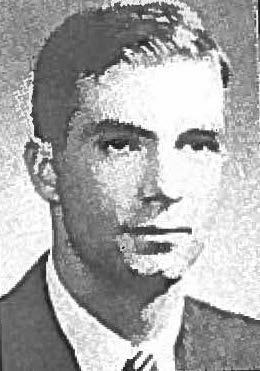50th Reunion
After having majored in Economics and written my thesis about the effect of commodity prices on single-crop economies like Ghana (coffee), I went to law school, thinking that training would improve my abilities as an economist. But after one year I couldn't tolerate law school, as it seemed to be a study of man-made rules to accomplish unilateral goals in an adversarial manner. If I had a second chance to attend law school, I would go into environmental law, to protect our fragile environment against the power of some big corporations who have no ethics except enrichment of their CEO and stock holders at the expense of future generations and the health of our planet. Or, I would try to influence legislation to modify our capitalist system to put an economic value on clean air and water and unpolluted land, and to gradually phase out our tax on-income system and substitute a series of taxes on pollution and sprawl and speculation in land values (which creates wealth in return for nothing except a keen sense of greed).
I also had a real interest in science and in doing something worthwhile for others, so I decided to finish the partial pre-med curriculum I began at Amherst, and went to medical school and on into an OB/GYN residency, which became the perfect field for me, as I found I could really make a difference in the lives of a woman and her unborn child. It also enabled me to direct professional time and energy into dealing indirectly with the major problem on this planet-the explosion of human population, which threatens to destroy all ecologic systems and increase the misery of those in the most crowded places like Haiti and Rwanda. I spent nearly half my practice time helping women NOT to become pregnant (except when a child was desired), by dispensing all methods of contraception, and offering tubal sterilization. I also joined many of my colleagues in providing safe abortion to those women who wanted or needed it. Fortunately I was in a state which left that very private decision to a patient and her physician.
I have maintained my concern about the human population explosion -a problem little understood and drastically threatens the quality of life for rich and poor. We need the political will to help all nations to eliminate female illiteracy and empower women to bear only the children that they want. This would achieve population stabilization which would help prevent further global warming, restore habitat and ecosystems, and allow better fulfillment of human potential around the globe.
I think all of us in the class of ‘55 remember Prof. Packard and his brilliant lectures in western history. But in retrospect, I feel he may have overemphasized some of the details of events and neglected some of the major trends and how they affected the world. He could have talked more about how leaders with different types of government brought about great changes in history, with the help of their citizens or in spite of their opposition. He could have outlined the extremely fast growth of population in the previous two centuries and suggested problems that might result. In American Studies our professors could have presented the true and varied history of America (in the manner of Howard Zinn in his "People's History of the U.S."), rather than the traditionally rose-colored story. Many of us were somewhat provincial and spoiled young men. I believe we should have been urged to travel abroad and appreciate different points of view and understand a wider range of problems in the world.
I did in fact take the summer between my junior and senior years to travel in Europe which was then still a third world area, recovering from the war.
Prior to my trip I tried to improve my language skills in French and German and was able to talk with many different people and gain some understanding of their lives and viewpoints. I experienced conditions different and more harsh than at home. As a result 1 came home a much more mature young adult, able to appreciate my good fortune, see my country with different eyes, and make better decisions about managing my life.
